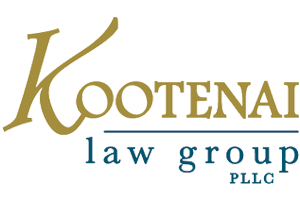Revocable or Irrevocable Trust
Your Family Trust – Should It Be Revocable or Irrevocable?
Trusts are an essential part of estate planning for many individuals, especially those looking to avoid the complexities of probate. One common question we encounter at Kootenai Law Group is: Should my trust be revocable or irrevocable? This decision plays a critical role in how your assets are managed both during your life and after you pass. Below, we explore the key differences between revocable and irrevocable trusts, and why most clients opt for revocable trusts.
What is the Difference Between a Revocable and Irrevocable Trust?
At its core, a trust is a legal contract where a Grantor (the person creating the trust) appoints a Trustee to manage their estate based on specific instructions. These instructions include how to manage assets during the Grantor’s life (particularly if they become incapacitated) and how to distribute assets upon their death.
Revocable Trust:
• Flexibility: The Grantor can modify or revoke the trust during their lifetime.
• Control: The Grantor typically serves as the initial Trustee, managing the assets as they wish.
• Changes Over Time: Life circumstances change, and a revocable trust allows amendments to reflect those changes (e.g., beneficiaries, asset distribution, successor trustees).Irrevocable Trust:
• Inflexibility: Once created, the trust cannot be revoked or easily amended without court intervention.
• Special Use Cases: Commonly used for Medicaid eligibility, VA Aid, and Special Needs Trusts, as it protects assets from creditors and program eligibility requirements.
Trusts and Estate Planning Services at Kootenai Law Group
By working with experienced estate planning attorneys like those at Kootenai Law Group, you’ll have peace of mind knowing that your trust is set up correctly to meet your needs, both now and in the future.
Why Choose a Revocable Trust?
For most people, revocable trusts are the optimal choice due to the flexibility they provide. As life progresses, so do your needs and circumstances. A revocable trust allows you to:
• Adjust your estate plan as your family situation changes (e.g., new children, marriages, divorces).
• Continue managing your assets as long as you are able, and appoint a Successor Trustee to step in if you become incapacitated.
• Eliminate the trust if it’s no longer needed or circumstances drastically change.
Key Benefits of a Revocable Trust:
• Flexibility to make changes
• Avoidance of probate
• Continued control over assets during your lifetime



When Would You Use an Irrevocable Trust?
While most clients benefit from revocable trusts, irrevocable trusts can be crucial in specific situations where asset protection is necessary. Examples include:
• Medicaid and VA Planning: Protect assets from being counted in eligibility for benefits.
• Special Needs Trusts: Ensure that a disabled beneficiary receives care without disqualifying them from government benefits.
• Tax Planning: In certain high-asset estates, irrevocable trusts can reduce tax liabilities.

Areas of Practice
Estate Planning
Here at Kootenai Law, we specialize in cases under the Estate Planning section. Let our team help you with your Wills & Trusts, Power of Attorney & more!
Elder Law
We deal with many Elder law cases here at Kootenai Law. Ranging from Guardianship, Medicaid Eligibility, Probate and more. Our Elder Law lawyers can help you out. Call us for an appointment!




